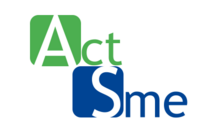|
SME Tools
Enterprise Europe Network 
The world’s largest support network for SMEs with more than 3.000 experts, 600 member organizations, 60+ countries Specialized industry expertise across 17 sectors from textile to automotive Targeted networking with largest database of potential business partners Advisory services through a network experts on market opportunities Innovation support services to exploit innovation potential
http://een.ec.europa.eu
SME Internationalization Portal 
One of European Commission’s priorities is to improve access for SMEs to new markets within and outside the EU Single Market
The Internationalization Portal empowers SMEs and entrepreneurs to: - access a database of support service providers find links to other EU sources of specialized support
https://ec.europa.eu/growth/smes/access-to-markets/internationalisation/support-tools_en
Access to Finance Portal 
Gateway to financial intermediaries for enhanced A2F for SMEs Detailed information and direct contact per country Browse by size of SME, type of financing, sector, etc.
EU Funding Programmes for SMEs 
In addition to practical tools and resources to facilitate SMEs’ access to the Single Market, the EU Commission also provides grant financing to SMEs through centralised programmes aiming at enhancing SMEs’ competitiveness and innovation capacity
SMEs are eligible for grant financing through EU funding programmes that cover the full range of topics and themes, from cultural enterprises to environment and infrastructure
COSME: supporting Competitiveness of SMEs 
COSME is the EU funding programme dedicated to enhancing SMEs’ competitiveness and unlocking the entrepreneurial potential in the EU
In addition to a series of financial instruments to facilitate access to finance (channeled through banks and financial intermediaries in Member States), the COSME programme provides assistance to SMEs at systemic level
COSME also provides financing for the tourism sector
COSME is managed by EASME, the EU Agency for SMEs https://ec.europa.eu/easme/en/cosme
Horizon 2020 for innovative SMEs 
Horizon 2020 is the EU funding programme in support of Research & Innovation. Structured along 3 themes of Excellent Science, Industrial Leadership and Societal Challenges, the H2020 programme funds research and innovation activities in university, research centers and enterprises along a variety of sectors from agriculture to transport
The H2020 portal provides all the relevant information about funding opportunities and deadlines http://ec.europa.eu/research/participants/portal/desktop/en/home.html
In addition to the various funding opportunities available under H2020, the SME Instrument is the instrument of choice for SMEs to finance their groundbreaking innovations
Horizon 2020 SME Instrument 
Phase 1: Concept & Feasibility Assessment € 50.000 to carry out a feasibility study to verify the viability of the proposed disruptive innovation or concept. The proposal is a short business plan of 10 pages
Phase 2: Demonstration, Market Replication, Research & Development € 0.5 to € 2.5 Ml for innovation activities (demonstration, testing, piloting, etc). The proposal is a more complete business plan of 30 pages
Phase 3: Commercialisation and Market Launch Access to risk finance through financial products (loans, guarantees, innovative financing, etc)
The SME instrument is managed by EASME, the EU Agency for SMEs https://ec.europa.eu/easme/en/cosme
The European Single Market 
The Single Market is one of the greatest achievements of European integration as it establishes a market without borders and barriers for the free trade of goods and services within the European Union
The Single Market is made of more than 500 Ml consumers and encompasses the 28 Member States and some third countries that participate to the Single Market by virtue of multilateral or bilateral trade treaties, such as Iceland, Liechtenstein and Norway (European Economic Area) and Switzerland (bilateral treaties)
EU Single Market: challenges 
By opening up access, the Single Market encourages competition leading to more competitive businesses, increased quality of goods and services as well as growth. The EU Commission encourages the Single Market integration process, on the one hand eliminating regulatory and technical barriers to trade, on the other hand supporting SME development.
The EU Commission, in conjunction with Member States, promotes the modernization of standards, enacts regulation that ease the business environment, prevents discriminatory practices to create a levelled playing field for all enterprises operating in the Single Market
EU Single Market for SMEs 
There are more than 21 million SMEs operating in the EU, and the EU Commission recognises their crucial role for the realisation of the Single Market
In addition to regulating and policing the market, the EU Commission also provides valuable tools for SMEs to access and actively participate in the Single Market
European Tools and Resources for SMEs 
The EU considers SMEs and entrepreneurship crucial for economic growth, job creation, innovation and social integration To promote entrepreneurship and to support SMEs, the EU provides key support networks, tools and resources: 1. Your Europe Business Portal – a guide to doing business in Europe 2. Enterprise Europe Network – access to market information and partnership 3. SME Internationalisation Portal – information on foreign markets 4. Access to Finance Portal – assistance in finding financial support
Your Europe Business Portal 
This portal is a convenient guide for entrepreneurs to expand business abroad with useful information and interactive services
The portal covers a wide range of topics i.e. e-procurement, IPRs, Standardisation, EU funding and is divided in 8 main sections
|


















